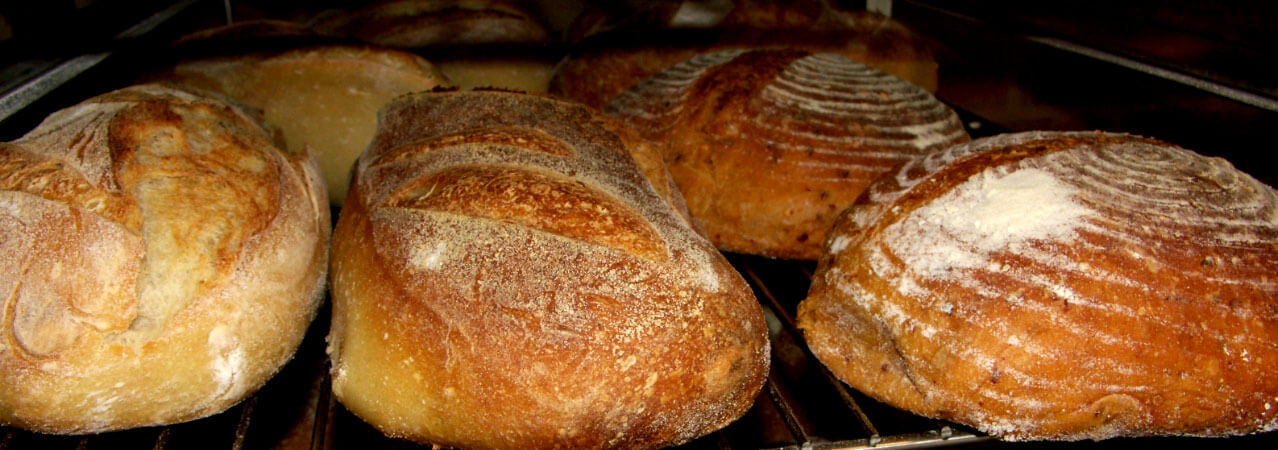
As of 26th May 2022 we will not be baking bread for sale.
The historic Dover Bakehouse was built to provide bread to the Far South community around 1920.
Until May 2022 we baked once a week and our customers had a choice of the following loaves.
Our breads
| SOURDOUGH | $ |
|---|---|
| PITA (6) | 5.00 |
| 100% RYE LOAF | 6.00 |
| BLACK OLIVE LOAF | 7.00 |
| MULTIGRAIN LOAF | 7.00 |
| RYE WITH CARAWAY SEEDS LOAF | 7.00 |
| SALTY SEEDED LOAF | 7.00 |
| SPICED FRUIT LOAF | 7.00 |
| SEAWEED LOAF | 7.00 |
| WHITE EVERYDAY LOAF | 7.00 |
| WHOLEMEAL LOAF | 7.00 |
| PARMESAN & CRACKED BLACK PEPPER LOAF | 8.00 |
| NON-SOURDOUGH | $ |
|---|---|
| NUT & SEEDS LOAF (no flour, just oats, grains & seeds) | 9.00 |
| FILLED FOCCACIA | 10.00 |
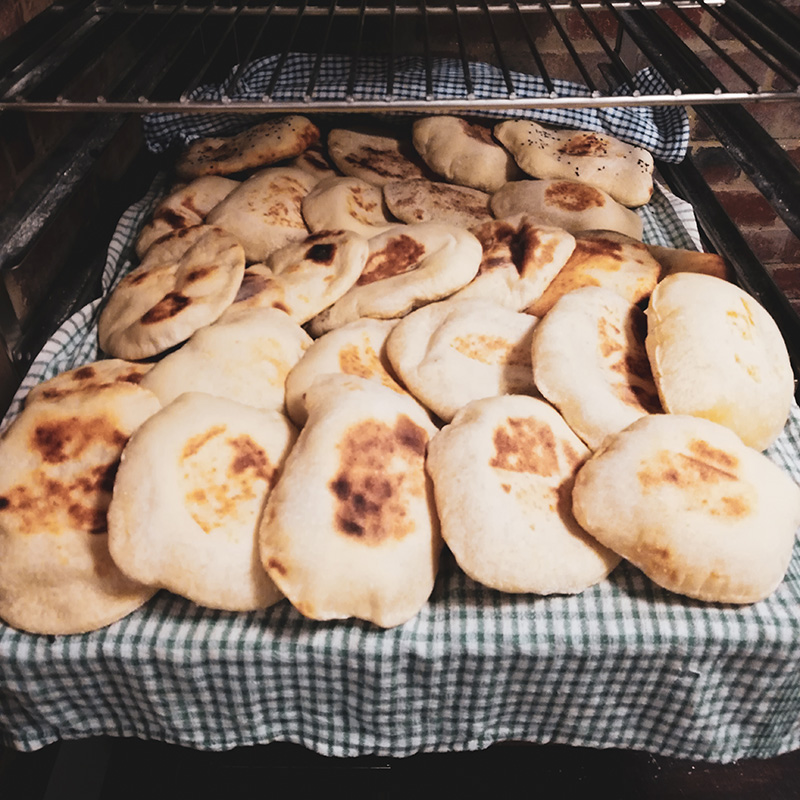
PITA 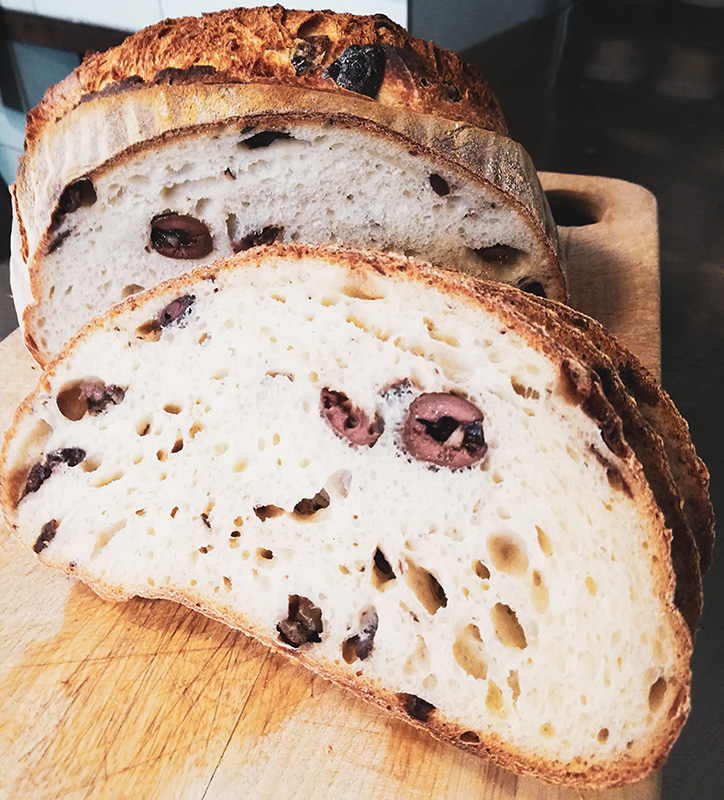
BLACK OLIVE LOAF 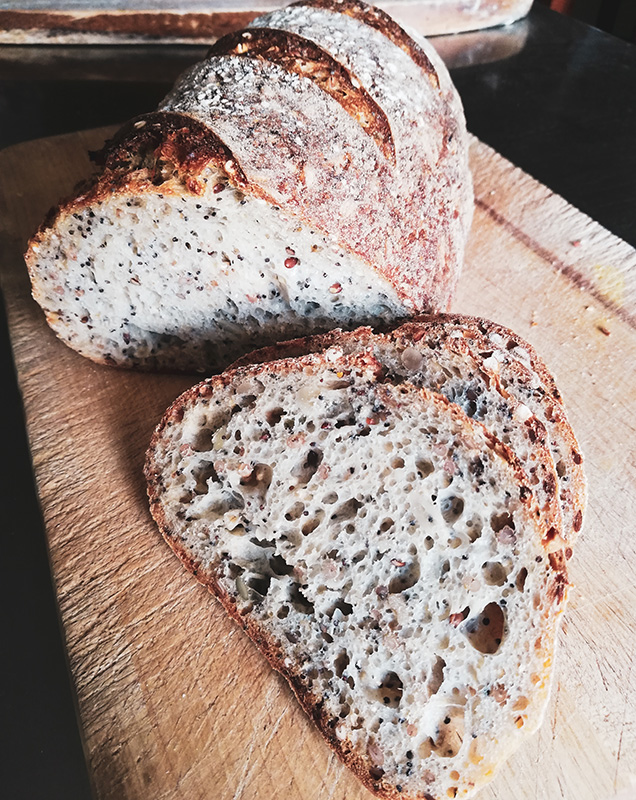
MULTIGRAIN LOAF 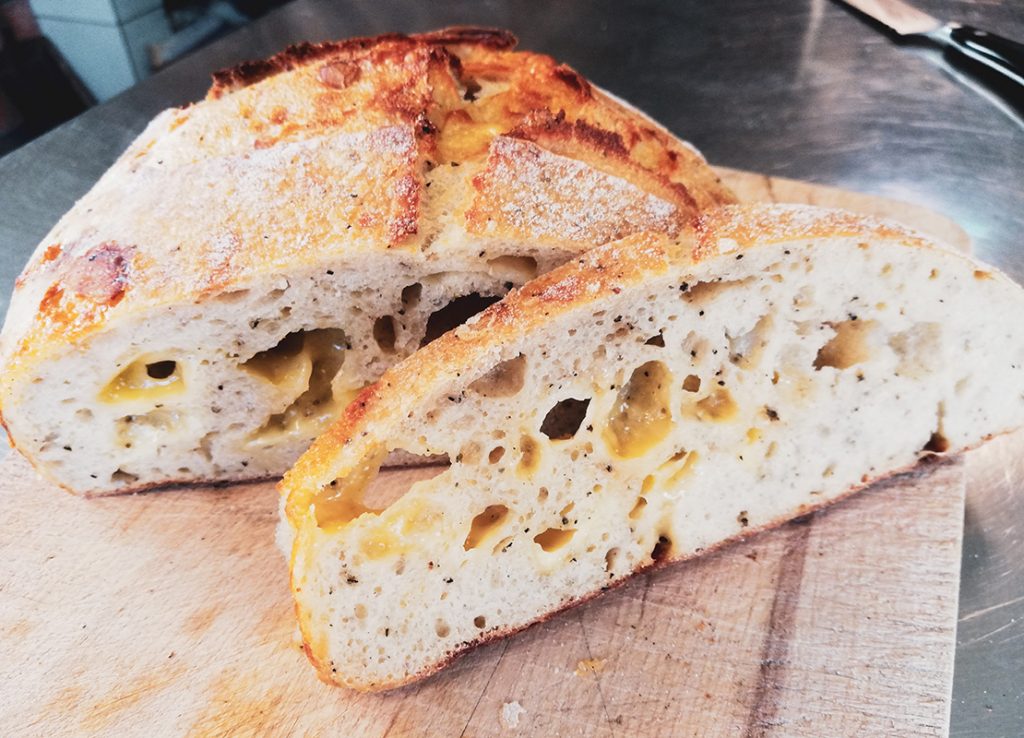
PARMESAN CRACKED BLACK PEPPER LOAF 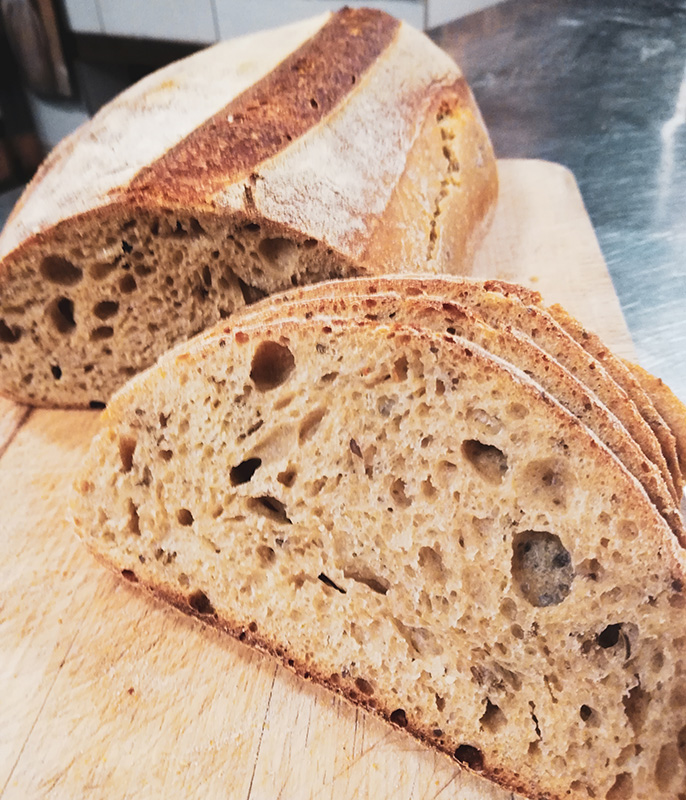
RYE WITH CARAWAY SEEDS LOAF 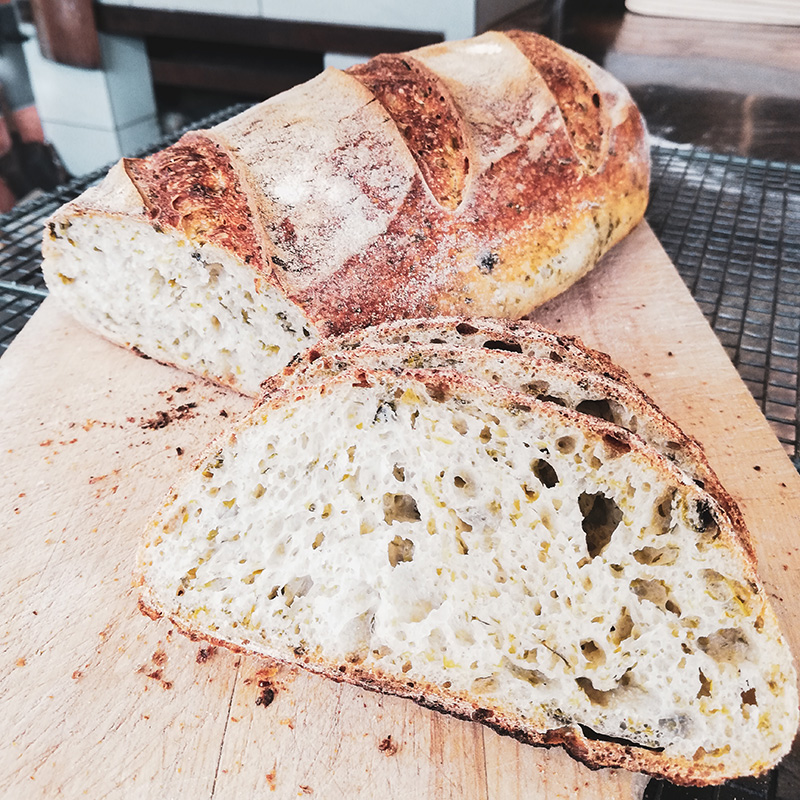
SEAWEED LOAF 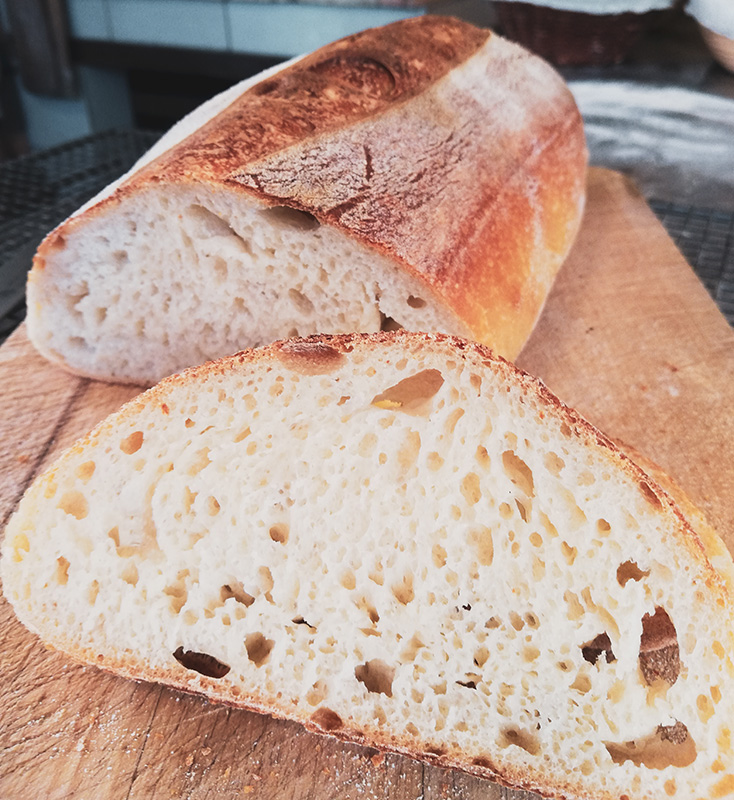
WHITE EVERYDAY LOAF 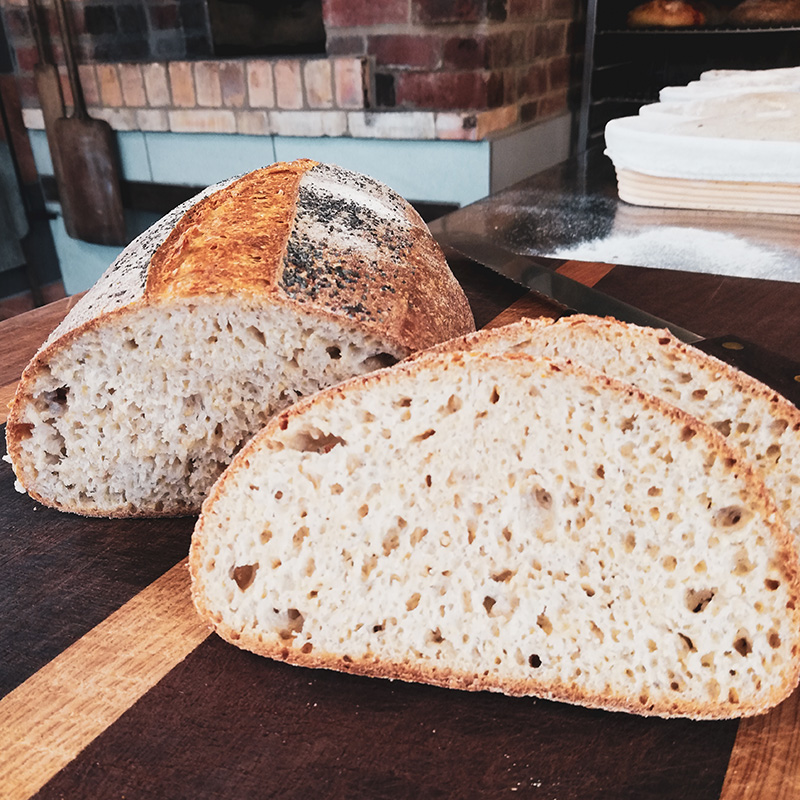
WHOLEMEAL LOAF
The bakehouse in times gone by
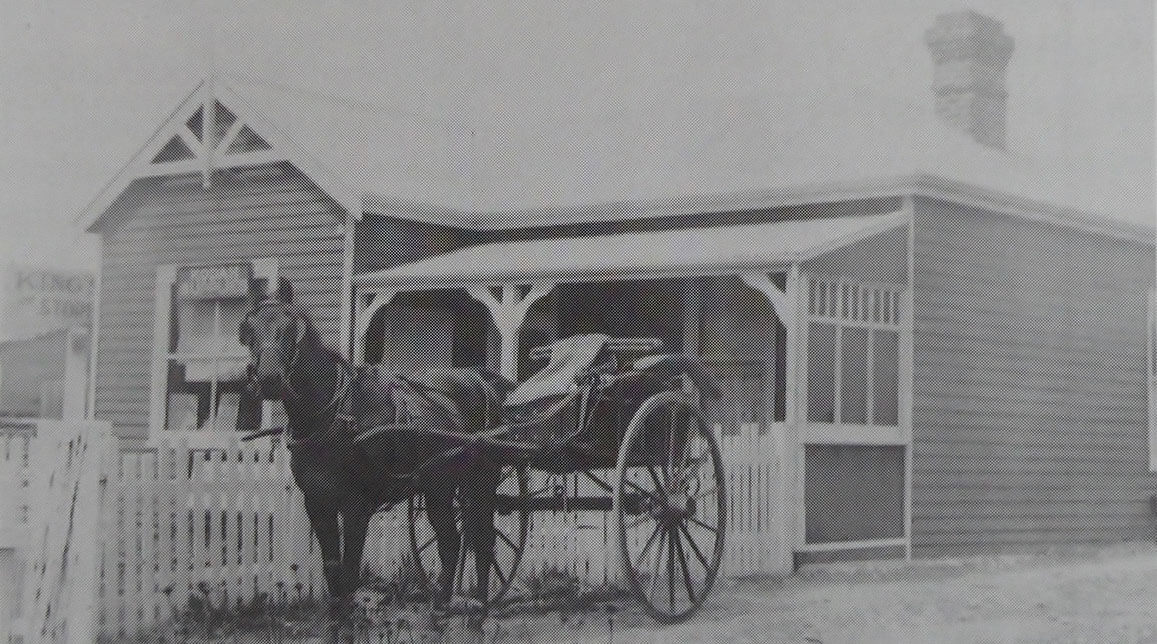
The Far South of Tasmania was once a populous region, with activity centered around a number of sawmills that shipped Huon pine and Tassie Oak to the world. At the busiest time, most of the sawmills had their own bakery and shops. Later the town of Dover had three bakeries, the other two situated where the local school now stands.
The Dover bakehouse produced bread, cakes, tarts, buns, and pies for most of the population of the Far South. These were sold from a cake shop at the front of what is now the private residence of the Bakehouse Distillery. The oven was wood-fired and later oil fired out of necessity, having been built before electricity reached the area.
Bread deliveries were made by horse and cart to regional communities as far afield as Francistown, Raminea, Strathblane, Southport, Lune River, Catamaran, Glendevie and Police Point. The journeys were long, and the horses were pushed to their limits. In around 1950, the horse and cart were replaced by a delivery van and the horses were given a well-earned rest.
Deliveries were even made by ship to Dennes Point and Lunawanna on Bruny Island aboard the SS Cartela and SS Dover. Sometimes, fishermen would dock in Port Esperance during rough weather, and the bakers would work extra hard to make sure there was enough fresh bread to go around.
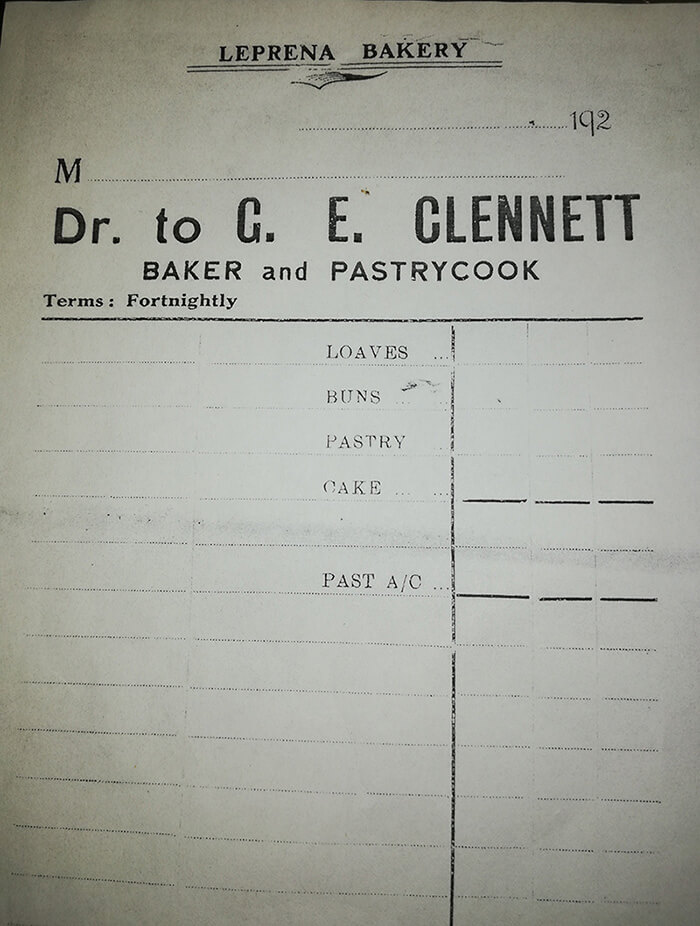
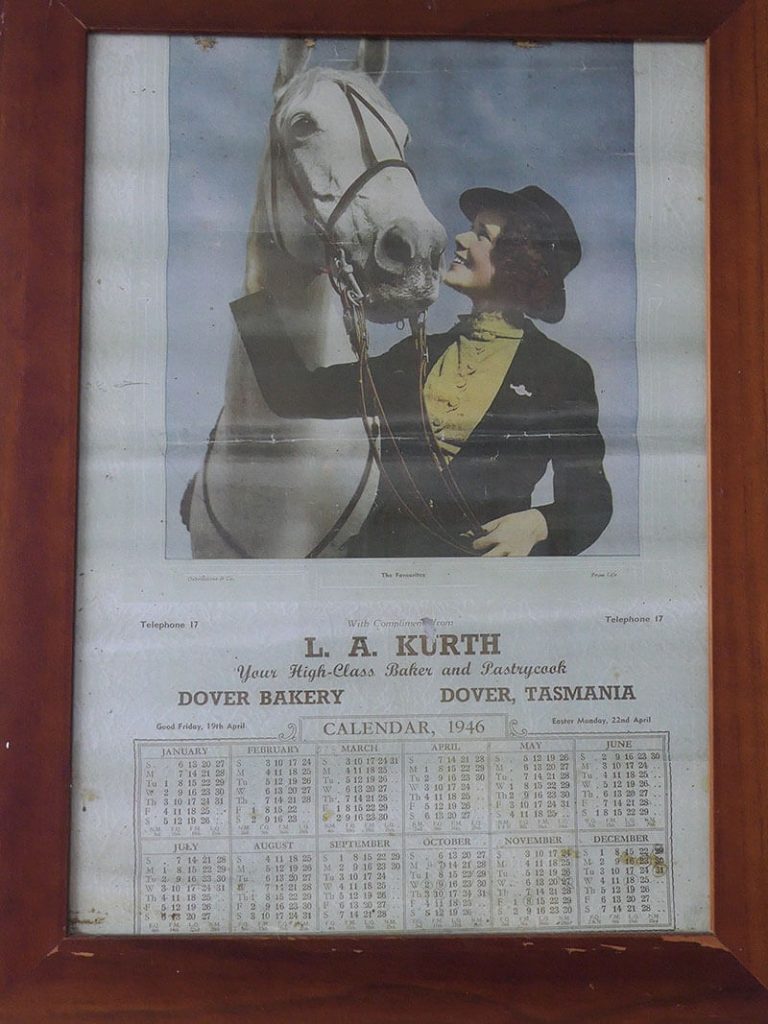
Established by the Clennett’s circa. 1920 at the peak of activity, each batch of bread baked at the Dover Bakehouse used three bags of flour and produced three hundred loaves. The bakery employed three delivery drivers and three bakers, who began baking at midnight and worked all night. In 1924, new owner Mr. Kurth developed a groundbreaking recipe for a quicker rising dough, which meant shorter working days for the bakers. The Gould family then purchased the bakery in 1941. Brian Baker recounts how he began as an apprentice in 1945 on a weekly salary of £1.0.5 and by the end of his 5-year apprenticeship had taken over as head baker, receiving a hefty £4.8.6 a week.